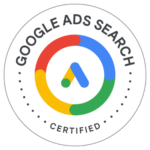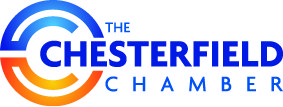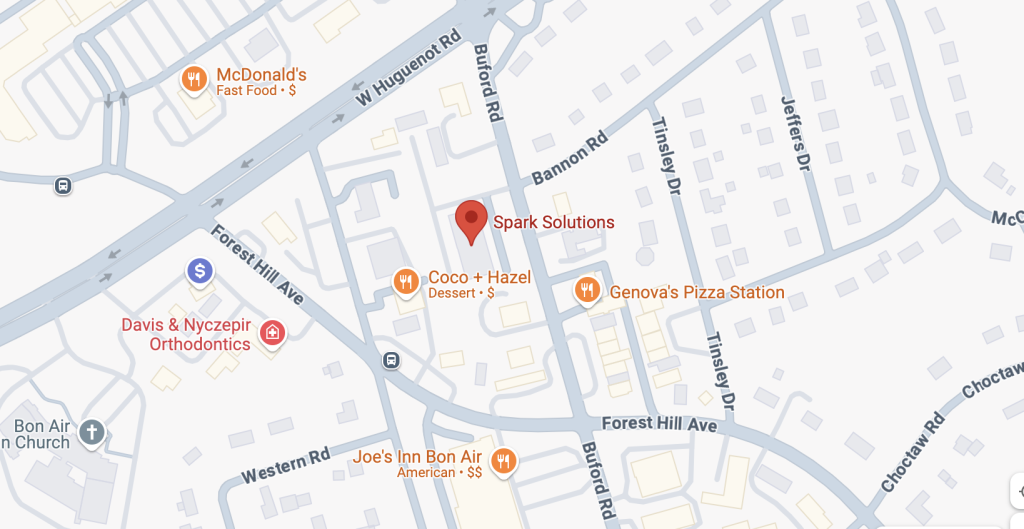Welcome back to Spark Notes! Today, we’ll be walking through the different types of keywords and how to choose the right ones for your Google Ads campaigns.
First off, as some of you know, keywords are the bread and butter of your Google Ads campaigns, and how you get your ads in front of the right audience.
But there are different types of keywords that you can use that will affect the reach and relevance of the results you will see. And Google just changed how they work. Luckily for you, we’re here to demystify these changes!
Let’s dive into the three types of keywords: Broad match, Phrase match, and Exact match.
Broad Match: Google now defines these keywords as Comprehensive matching, but what does that mean?
Simply put, broad match keywords are highly-variable, very loose keywords that will show your ads to searches that are related to your keyword.
Let’s use an example.
If you are targeting the Broad match keyword “luxury car,” your ads might show for searches such as:
- “luxury cars” (makes sense)
- “fast cars” (we can see where the jump was made)
- “luxury apartments” (okay, but not what we’re looking for)
- “expensive vehicles” (that could work depending on the intent)
It’s basically like fishing for catfish using a very large fishing net. You are casting a big, wide net into the water and yes, you caught some catfish, but you also caught some crab, crawfish and old shoe along with it.
Broad match keywords give you the most reach but least relevance and control in your ads.
Phrase Match: Google now defines phrase match as Moderate matching. This means that your ads may show for searches that include the meaning of your keyword.
Phrase match is tighter than Broad match, but not as specific as Exact match. They provide more of a middle ground between reach and relevance for your ads to show.
For example, if you are targeting the Phrase match keyword “lawn mowing service,” your ads might show for searches such as:
- “lawn mowing services” (the obvious)
- “local lawn cutting services” (okay, makes sense here)
- “grass cutting services near me” (the same meaning, but not the same phrase)
They no longer match word-to-word, but more so topic-to-topic.
Essentially, you’re using a medium-sized fishing net that is designed only for fish. You’re catching the catfish you’re fishing for, along with fish that are similar, but rarely old shoes.
And lastly, Exact Match: Google now defines these as Tight matching, which kind of steers away from the whole “exact” matching concept.
With Exact match, your ads may show on searches that are the same meaning, or same intent, as your keyword.
These keywords give you the most control over who can see your ads, but also the least amount of reach compared to Phrase and Broad.
For example, if you are targeting the Exact match keyword “yosemite camping,” your ads may show for searches such as:
- “yosemite national park camping” (we have the same implied words here)
- “yosemite campground” (paraphrased, but same meaning)
- “campsites in yosemite” (this is the same intent as our keyword)
With Exact match, you’re using a fishing pole with bait specifically meant for catfish. You might get a nibble here and there from other fish, but you’re mainly catching the catfish you’re fishing for.
Overall, match types can have a huge impact on your ad performance and it is critical that you are using the right ones for your objectives. Your reach, relevance, and cost-effectiveness are directly influenced by the keyword match types you choose.
The right keywords can allow you to reach your target audience while avoiding unnecessary spend on clicks that aren’t the right intent for your business.
Balancing your reach and relevance will allow you to drive real results while maintaining growth into new search trends so you can meet, or even exceed, your marketing objectives.
——–
Thanks for reading another excerpt from Spark Notes! We understand that navigating the terrain of Google Ads can be overwhelming, but understanding common mistakes can help you avoid wasteful spend. If this all seems like too much, hiring an internet marketing agency like Spark Solutions can simplify the process, save you time and money, and ensure your marketing dollars are well spent.
















